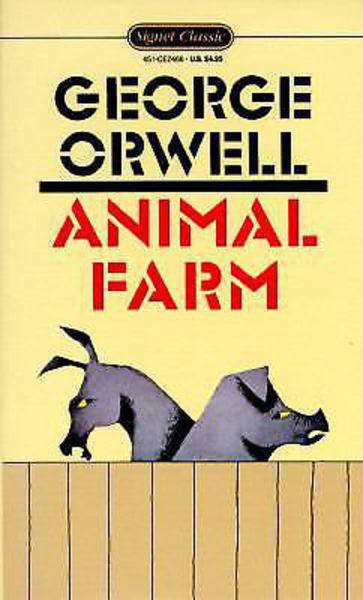Animal Farm: George Orwell
Published 11:00 am Saturday, April 27, 2019

- Animal Farm: George Orwell
In “Churchill & Orwell,” author Thomas E. Ricks analyzes George Orwell’s “Animal Farm” and “1984.”
Completing Ricks’ excellent book (see review in this edition), I felt compelled to pull a slim, battered paperback of “Animal Farm” from my shelves.
Because it is slim and features talking barn animals, “Animal Farm” was a favorite volume for the perpetual round of book reports in way back in high school. Nearly 40 years ago, I heard so many book reports on “Animal Farm: that I vowed to read it at a later date so some of those countless student summaries would fade from memory.
I waited only a few years, reading it in college, on a long student road trip to New York City. That’s been more than 30 years ago. It was the same volume I pulled from my book shelf earlier this month.
“Animal Farm” only takes a couple of hours to read but the story can remain with a reader for a lifetime.
The animals of Manor Farm rise up and oust Farmer Jones, his wife and their human workers. At first, all animals are equal. They develop commandments for all animals to live by. The pigs offer to lead the other animals.
Soon, the pigs are asking for more food to nourish their leadership and managerial skills. Orwell reportedly noted had the other animals not acquiesced to the food demand, the pigs could have been stopped at this time.
But shortly after allowing the pigs more food, it’s too late.
Two pigs rise to prominence as rival leaders. Snowball and Napoleon. Snowball distinguishes himself in a battle to keep the humans from reclaiming Animal Farm. Snowball devises ideas to better the lives of all of the animals, such as a windmill which should decrease the work load for animals running the farm.
Napoleon teaches the sheep to repeatedly bleat: “Four legs good; two legs bad.” They often interrupt Snowball’s speeches with this mantra.
During a meeting, Napoleon dismisses the windmill idea. When Snowball persists, Napoleon orders several dogs he’s secretly raised and feds since pups. The vicious dogs run Snowball off the farm. At Napoleon’s orders, the dogs intimidate any who question what happened. The sheep bleat their mantra to further interrupt any debate.
Soon, Napoleon institutes the windmill project. He ends ceremonies. He rewrites history causing animals who witnessed Snowball’s heroism to question their eyewitness memories, until Snowball is remembered as leading the humans instead of valiantly fighting the humans. Animal rations decrease while rations for the pigs increase. The pigs move into the farmer’s house.
Throughout, Animal Farm commandments are amended overnight, one by one, until they are replaced by one commandment: “All animals are equal but some animals are more equal than others.”
The book is supposedly based on the Trotsky-Stalin history of the Soviet Union but “Animal Farm” remains relevant even decades after the fall of the USSR. It still stands as a warning parable to watch leaders, especially leaders who try changing facts, who dispute incidents even when others can testify they occurred.
As a warning to generations past and future, as a warning to people today.





